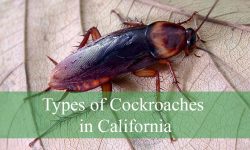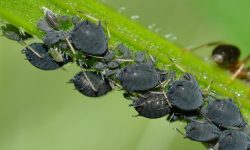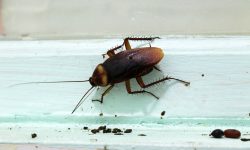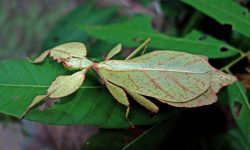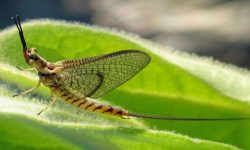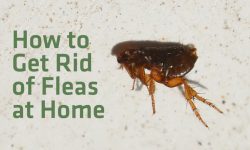Aphids are small, sap-sucking insects that can wreak havoc on your garden, feeding on the tender leaves and stems of your favorite plants. These pesky pests not only weaken plants but can also transmit diseases, leading to stunted growth and diminished yields. Fortunately, there are numerous effective and natural methods to combat aphid infestations without resorting to harsh chemicals.
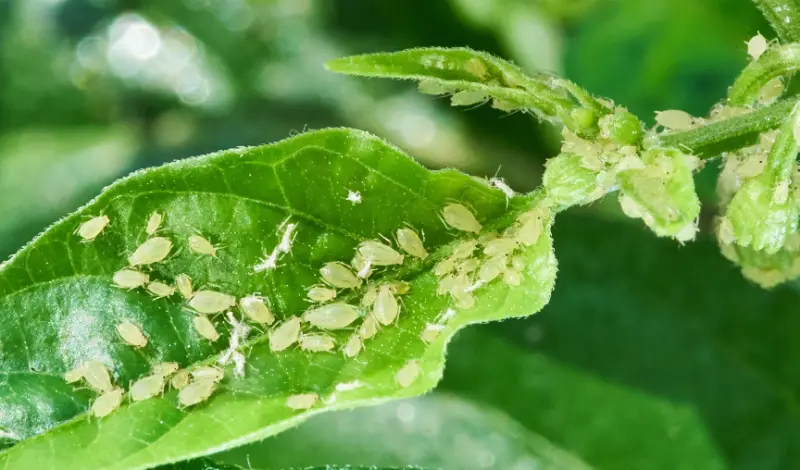
In this article, we will explore 23 easy and natural ways to get rid of aphids, helping you protect your garden and promote healthy plant growth.
Various Natural Ways to Get Rid of Aphids
Baking Soda
Baking soda is a popular remedy in the gardening community, often raised with the question, “Will baking soda kill aphids?” The answer is yes; it can effectively eliminate these pests.
To create your own baking soda spray, mix one tablespoon of baking soda, one teaspoon of dish soap, and two tablespoons of vegetable oil with a gallon of water. The baking soda disrupts the aphids’ ability to thrive, while the dish soap and vegetable oil help the solution adhere to the plants and pests.
Once mixed, transfer the solution into a spray bottle and shake well to ensure all ingredients are combined. Use this mixture to spray directly on the aphids infesting your plants. Regular application can help manage and reduce aphid populations effectively, keeping your garden healthy and thriving.
Essential Oils
Essential oils can be a natural and effective way to keep aphids out of your garden. Oils such as anise, basil, fennel, peppermint, and pennyroyal have properties that repel these pests. In the words of Hippocrates, “Nature itself is the best physician,” and these essential oils demonstrate that by offering a chemical-free solution to garden maintenance.
To create your own aphid spray, mix 2 ounces of your chosen essential oil with a gallon of water. This simple mixture serves as an excellent organic spray for getting rid of aphids, targeting not just the adult insects but also their eggs. With consistent application, your garden will remain a pest-free sanctuary, all while embracing natural remedies.
Soapy Water
Soapy water is a simple yet effective method for dealing with aphids in your vegetable garden. By using a mixture of liquid soap and water, you can create a mild, non-toxic aphid spray that works well on a variety of plants. The soap helps break down the protective outer layer of the aphids, causing them to dehydrate and die.
To make this spray, mix 5 tablespoons of liquid soap with a gallon of water. Shake the mixture thoroughly and spray it directly onto the affected plants. You can also opt to purchase a pre-made insecticidal soap spray if you prefer a ready-to-use solution. This remedy works not only on aphids but also on other garden pests.
However, be cautious when applying it, as it can also harm beneficial insects like ladybugs or pollinators. Therefore, take care to avoid spraying these helpful bugs when using soapy water on houseplants or outdoor plants.
Neem Oil
Neem oil is a powerful natural pesticide commonly used to combat aphids, as well as a variety of other garden pests. Extracted from the seeds of the neem tree, it contains compounds that interfere with the life cycles of insects, preventing them from feeding, reproducing, or growing. One of the key benefits of neem oil is that it targets harmful pests without affecting beneficial insects like ladybugs, bees, or earthworms, making it an eco-friendly choice for gardeners.
To create an effective neem oil spray, combine one tablespoon of neem oil suitable for garden use, one tablespoon of liquid soap (which helps the oil stick to the plants and pests), and a gallon of water. Stir the mixture well, ensuring all components are thoroughly blended. Transfer the solution into a spray bottle and apply it to your plants, covering both the upper and lower sides of the leaves. This homemade spray acts as a protective barrier against pests like aphids, whiteflies, and spider mites, helping maintain the health and vitality of your garden without the use of synthetic chemicals. Regular application, especially after rainfall, will ensure long-term effectiveness.
Epsom Salt
Epsom salt can be used to create a homemade aphid spray that is both easy to make and effective at keeping pests away. To prepare this DIY treatment, simply mix 2 tablespoons of Epsom salt, 2 teaspoons of liquid soap, and a gallon of water.
After combining the ingredients, pour the solution into a spray bottle and shake it well. Once ready, apply it to your plants, making sure to thoroughly coat the leaves and stems.
This spray not only helps repel aphids but also deters other harmful insects, providing a natural way to protect your garden. Additionally, Epsom salt can benefit plant health by providing essential magnesium.
Vinegar Solution
A vinegar solution is a widely used natural remedy for killing plant lice (aphids) and repelling various other garden pests. Its acidic properties make it an effective, eco-friendly alternative to chemical pesticides.
To make a natural aphid spray using vinegar, combine 1 tablespoon of liquid soap, 4 tablespoons of white vinegar, and a gallon of water. The liquid soap helps the solution stick to the plants and pests, while the vinegar acts as a natural deterrent.
Once mixed, pour the solution into a spray bottle and apply it to the affected plants, ensuring thorough coverage. This homemade spray will help keep aphids and other harmful insects at bay while maintaining a healthy, chemical-free garden.
Garlic Spray
Garlic is an excellent natural repellent for greenflies and many other insect pests. Its strong odor and compounds make it an effective and eco-friendly solution for keeping unwanted critters away. You can easily make a DIY garlic spray to protect your plants from infestations.
To create this spray, you’ll need mineral oil, fresh garlic, a teaspoon of liquid dish soap, and 2 cups of water. Start by chopping 4 cloves of garlic and soaking them overnight in 2 teaspoons of mineral oil. The next day, strain the garlic oil and mix it with the 2 cups of water. Add the liquid soap to the mixture to help the solution adhere to the plants.
Once the ingredients are combined, shake the mixture well and apply the garlic spray to your plants, thoroughly covering them. This homemade garlic repellent will not only drive away greenflies but also help protect your garden from other pests naturally.
Diatomaceous Earth (DE)
Diatomaceous earth (DE) is another excellent home remedy for killing greenflies by dehydrating them to death. This natural substance is highly effective against a variety of garden pests and is a popular choice for organic gardeners. Be sure to purchase a food-grade DE that is safe to use in your organic garden.
To use, lightly dust the leaves of the affected plants with DE. Alternatively, you can create a spray by mixing 5 tablespoons of diatomaceous earth with a gallon of water. Once mixed, apply the solution to the affected plants, covering both the aphids and the leaves. Be sure the solution coats the plants without dripping heavily, as the DE will kill the pests as it dries.
Reapply the treatment after any heavy rain, as water will wash away the DE and reduce its effectiveness. This remedy provides an organic, chemical-free way to protect your garden from harmful pests.
Hose Them
Using a garden hose is another effective home remedy for getting rid of aphids on your plants. By spraying the affected plants with a strong gush of water, you can physically dislodge the pests from their perches on the leaves and stems.
This method not only helps remove the aphids but also provides a quick and chemical-free solution to pest control. Just aim the hose at the undersides of the leaves and the areas where aphids tend to congregate, ensuring a thorough rinse. Regularly spraying your plants in this manner can significantly reduce aphid populations and help maintain a healthy garden ecosystem.
Aluminum Foil
Using aluminum foil is a simple yet effective method to deter aphids in your garden. By placing aluminum foil on the ground underneath your plants, you can reflect light onto the undersides of the leaves, creating an unwelcoming environment for these pests.
In addition to repelling aphids, the foil can help retain soil moisture by reducing evaporation, benefiting your plants during dry spells. However, it’s important to remember to remove the foil at the end of the gardening season to protect the environment and prevent any potential hazards to wildlife. This method is a low-cost, eco-friendly way to enhance your garden while keeping aphids at bay.
Repellent Plants
Repellent plants can play a significant role in managing aphid populations in your garden. Varieties such as marigolds, garlic, catnip, rosemary, chives, and rye are known for their ability to deter these pests.
By strategically planting these species in or around your garden, you can create a natural barrier against aphids. Not only do they help protect your more vulnerable plants, but they also contribute to a diverse ecosystem, attracting beneficial insects that can aid in pest control. Incorporating these repellent plants into your garden design is an effective and organic approach to keeping aphids at bay while enhancing the overall health of your garden.
Pick them Off
One effective remedy for controlling aphids is to manually pick them off your plants. This hands-on approach allows you to target the pests directly and helps prevent further infestation.
Once you’ve collected the aphids, drop them into a container filled with soapy water. The soapy solution will suffocate the aphids, effectively eliminating them. This method not only reduces the aphid population on your plants but also ensures that you can monitor and maintain the health of your garden more closely. Regularly checking for and removing aphids can significantly enhance your plants’ overall well-being and prevent larger infestations in the future.
Squish the Eggs
Another effective method for controlling aphids is to remove and squish their eggs found on the leaves of your plants. By destroying these eggs, you disrupt the aphid life cycle, preventing future infestations.
While the eggs themselves may not pose an immediate threat, it’s essential to act quickly. Once they hatch, the newly emerged aphids will begin to feed on your plants, causing damage and stress. Regularly inspecting your plants for aphid eggs and promptly squishing them can significantly reduce the risk of a larger infestation, helping to keep your garden healthy and thriving.
Get Rid of Ants
Getting rid of ants in your garden can be an essential step in controlling aphid populations, as some ant species actually protect aphids in exchange for the honeydew they produce. If you notice a significant presence of ants around your plants, it’s wise to take action to minimize their numbers.
You can deter ants by using various natural remedies, such as sprinkling diatomaceous earth around the affected areas, creating barriers with cinnamon or coffee grounds, or using vinegar solutions. By effectively managing the ant population, you can help reduce the protection they provide to aphids, making it easier to control these pests and maintain a healthy garden environment. Regular monitoring and targeted treatments will help ensure that both ants and aphids are kept in check.
Trap Crops
Trap crops are a clever pest control method for managing aphids, particularly on roses, tomato plants, dahlias, and other plants that they favor. By strategically planting certain crops that attract aphids, you can divert these pests away from your more valuable plants.
Nasturtiums, nettles, and calendula are excellent choices for trap crops, as aphids are particularly drawn to them. Once the aphids swarm these sacrificial plants, you can easily remove and discard them, significantly reducing the pest population in your garden. This method not only helps protect your primary plants but also utilizes natural plant behavior to create a balanced ecosystem.
Encourage Birds to Come Around
Encouraging birds to visit your garden is a natural and effective way to control aphid populations and other harmful pests. By putting out bird feeders, you can attract various bird species that feed on these insects, providing a natural form of pest control.
Birds like hummingbirds, chipping sparrows, and other common backyard birds are known to consume aphids, helping to keep their numbers in check. Additionally, creating a bird-friendly environment by planting native flowers, providing water sources, and installing birdhouses can further entice these helpful creatures to make your garden their home. This not only enhances your garden’s ecosystem but also promotes biodiversity, resulting in a healthier environment for your plants.
Onion Spray
Onion spray is an effective homemade remedy for repelling greenflies and other pests in your garden. To create this natural repellent, start by blending one onion in a cup of water until it forms a smooth mixture. After blending, strain the solution to remove any solid pieces.
Once you have the liquid, transfer it into a spray bottle and apply it directly to the affected plants. The strong smell of onions is highly disliked by greenflies, making this spray a powerful deterrent. Regular application can help keep your plants free from these pests while using an eco-friendly solution to protect your garden.
Beneficial Insects
Beneficial insects play a crucial role in maintaining a balanced ecosystem in your garden, as some feed on harmful pests like aphids. However, it’s essential to distinguish these helpful insects from those that can damage your plants.
Key aphid predators include ladybugs, green lacewings, damsel bugs, soldier beetles, and parasitic wasps. Introducing or encouraging these beneficial insects in your garden can significantly reduce aphid populations and other harmful pests. By fostering a welcoming environment for these allies—such as providing native plants, water sources, and shelter—you can enhance your garden’s natural defenses and promote healthier plant growth without relying on chemical pesticides. Regularly monitoring your garden for beneficial insects can help ensure they thrive and continue to provide pest control.
Wood Ash
Wood ash can be an effective and natural remedy for suffocating aphids and other pests in your garden. Many gardeners have reported success using this method to help manage pest populations. To try it out, simply sprinkle a light layer of wood ash on the affected plants.
The fine particles of ash can coat the aphids, obstructing their breathing and leading to their demise. Additionally, wood ash provides some essential nutrients to the soil, benefiting your plants in the long run. However, be mindful not to over-apply, as too much can alter soil pH. Experiment with this method to see if it works for you, and monitor your plants for any changes in pest activity.
Milk Spray
Milk spray is an effective homemade solution for managing aphid populations in your garden. To prepare this natural remedy, simply combine half a gallon of milk with half a gallon of water in a container.
After mixing, shake it well to ensure the ingredients are fully blended. You can then transfer the solution to a spray bottle and apply it directly to your plants. This method is not only safe for your plants and the environment but also helps eliminate aphids. Additionally, milk spray can assist in addressing fungal issues, promoting overall plant health. Regular application may enhance its effectiveness in controlling both pests and fungal problems in your garden.
Safe Commercial Pesticides
One of the easiest and quickest ways to eliminate an aphid colony is by investing in safe and natural commercial pesticides. Several effective options include:
- Debug
- ECOWORKS
- BioCeres
- AzaGuard
- Rango
These insecticides target aphids and other common plant pests while utilizing natural ingredients. Importantly, these products are OMRI listed, meaning they are safe for use in organic gardening. By choosing these eco-friendly options, you can effectively manage pest populations without harming beneficial insects or compromising the integrity of your garden. Regular application according to the instructions can help keep your plants healthy and free from aphid infestations.

